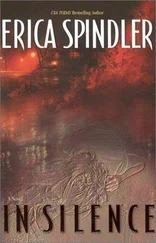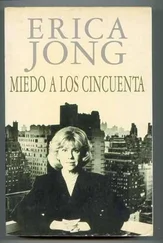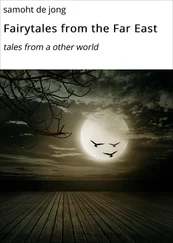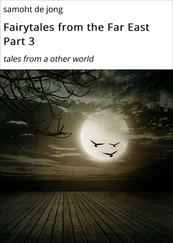Except for the fact that we had no clocks, our apartment was not much different from the typical young officer’s quarters in the compound. The furniture was of the hideous German overstuffed variety made right after the war and given to the Americans as part of the reparation. No doubt it was made even uglier than usual in revenge. It was sickly beige to begin with, but now, after twenty years of hard labor, it had mellowed, stained, and splotched to a mottled urine-yellow which bore the marks of many household pets and children and early morning beer-barfs. We had done our best to cover these hippopotamuslike couches and elephantine chairs with bright shawls and pillows and tapestries. We had covered the walls with posters and the windowsills with plants. We had filled the shelves with most of our own books (shipped, at great expense, by the government). But still, the place was depressing. Heidelberg itself was dismal. A beautiful town in which it rains ten months of the year. The sun struggles to appear for days, comes out for an hour or so, and then retreats again. And we were living in a prison of sorts. A spiritual and intellectual ghetto which we literally could not leave without being jailed.
Bennett was lost in the army and in his own depression. He had no help to offer me. I had none to offer him. I used to walk the streets of the old town alone in the rain. I spent hours wandering through department stores fingering merchandise I knew I’d never buy, dreaming in crowds, overhearing long conversations which at first I understood only snatches of, listening to the demonstration hucksters barking out the virtues of stretch wigs, false fingernails, carving sets, meat grinders, chopping blocks… “Meine Damen und fleren…” they begin, and every long sentence is interlarded with that phrase. It rings in your ears after a while.
All the potato-shaped ladies would stand around me, forming a gray wall of loden cloth. Germany is patrolled by armies of gray-coated ladies in Tyrolean hats and sensible shoes and jowls crimson with exploded capillaries. Up close, their cheeks seem laced with tiny fireworks caught, as in a photograph, at the moment of bursting. These sturdy widows are everywhere: carrying string bags with bananas sticking out, riding broad-assed on narrow bicycle seats, taking the rain-streaked trains from München to Hamburg, from Nürnburg to Freiburg. A world of widows. The final solution promised by the Nazi dream: a Jewless world without men.
Sometimes, wandering around aimlessly, riding the Stras-senbahn, stopping for beer and pretzels in a café, or Kaffee und Kitchen in a Konditorei, I would have the fantasy that I was the ghost of a Jew murdered in a concentration camp on the day I was born. Who was to tell me I was not? I devised complicated plots which I pretended to myself were merely surrealistic tales I planned to write. But they were more than tales and I was not writing. At times I thought I was going mad.
For the first time in my life, I became intensely interested in the history of the Jews and the history of the Third Reich. I went to the USIS or Special Services Library and began poring over books which detailed the horrors of the deportations and death camps. I read about the Einsatzgruppen and imagined digging my own grave and standing on the brink of a great pit clutching my baby while the Nazi officers readied their machine guns. I imagined the shrieks of terror and the sounds of bodies falling. I imagined being wounded and rolling into the pit with the twitching bodies and having dirt shoveled over me. How could I protest that I wasn’t a Jew but a pantheist? How could I plead worship of the Winter Solstice and the Rites of Spring? For the purposes of the Nazis, I was as Jewish as anyone. Would I turn back into earth and become a flower or a fruit? Was that what had happened to the souls of all the Jews murdered on the day I was born?
On rare sunny days, I used to haunt the markets. Germany’s fruit markets fascinated me with their diabolical beauty. There was a Saturday market behind the old Holy Ghost Church in the seventeenth-century town square. It had red and white striped awnings and heaps of fruit bleeding as if with human blood. Raspberries, strawberries, purple plums, blueberries. Masses of roses and peonies. Everything the color of blood and everything bleeding into wooden boxes and out onto the wooden tops of stands. Was this where the souls of the Jewish war babies had gone? Was this why the
German passion for gardening disturbed me so? All that misplaced appreciation of the sacredness of life? So much love channeled into the nurturing of fruit and flowers and animals? But we knew nothing about what was happening to the Jews, they told me again and again. It was not written in the papers. It was only twelve years. And I believed them, in a way. And I understood them, in a way. And I wanted to watch them all die slow and horrible deaths. It was the bloody beauty of the markets-the ancient crones who weighed out all that bleeding fruit, the tough blond fräuleins who counted out the roses-which never failed to stir all my most violent feelings about Germany.
Later on, I was able to write about these things and partly exorcise the demons. Later on, I was able to make German friends and even find tome things to love in the language and the poetry. But that first lonely year, I was unable to write and I had few friends. I lived like a solitary, reading, walking, imagining that my soul was slipping out of my body and that I was possessed by the soul of someone who had died in my place.
I explored Heidelberg like a spy, finding all the landmarks of the Third Reich which were deliberately not mentioned in the guidebooks. I found the place where the synagogue had stood before it was burned down. After I learned to drive, I was able to go even farther afield and I found an abandoned railroad siding and an old freight car with reichsbahn lettered on its flank. (All the shiny new trains were labeled bundesbahn.) I felt like one of those fanatical Israelis who tracks down Nazis in Argentina. Only I was tracking down my own past, my own Jewishness in which I had never been able to believe before.
What infuriated me most, I think, was the way the Germans had changed their protective coloration, the way they talked peace and humanitarianism, the way they all claimed to have fought on the Russian Front. It was their hypocrisy I abhorred. At least if they’d come out openly and said: We loved Hitler, one might have weighed their humanity with their honesty and perhaps forgiven them. In the three years I lived in Germany I only met one man who admitted that. He was a former Nazi and he became my friend.
Horst Hummel ran a printing business out of a tiny office in the old town. His desk was piled high with books, papers, and all kinds of junk, and he was always on the telephone or always shouting directions to the three cowering Assistenten who worked for him. He was about five feet tall, very paunchy, and wore thick amber-tinted glasses which accentuated the rings under his eyes. After meeting him for the first time, Bennett always referred to him as the Gnome. For the most part, Herr Hummel (as I called him in the beginning) spoke English well, but he made occasional howlers which compromised all his previous fluency. One day when I told him that I had to go home and make dinner for Bennett, he said: “If your Mann is hungry, then you must go home and cook him.”
Hummel printed everything from menus to advertising flyers to The Heidelberg Officers’ Wives’ Club Newsletter-a glossy four-page tabloid studded with typographical errors, doggerel about the plight of an army wife, and pictures of army matrons decked out in flowered hats, orchid corsages, and rhinestone-glinting harlequin glasses. They were always accepting awards from each other for various public services.
Читать дальше
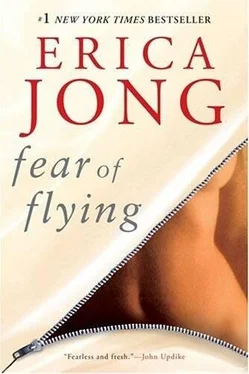
![Brian Jacques - [Flying Dutchman 01] - Castaways of the Flying Dutchman](/books/128851/brian-jacques-flying-dutchman-01-thumb.webp)



